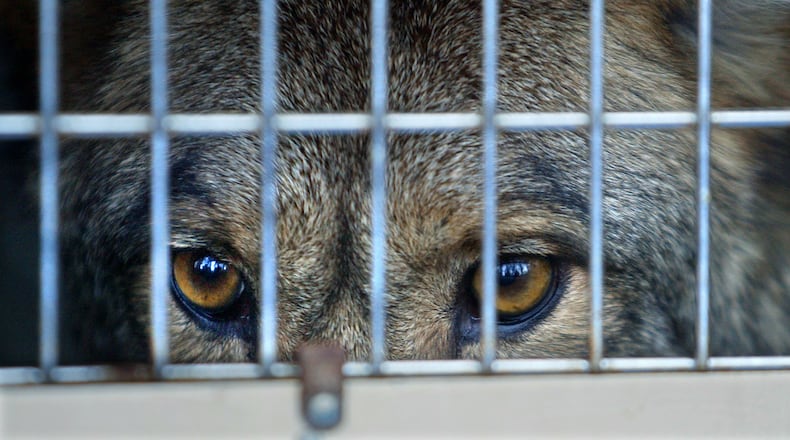The Georgia Department of Natural Resources wants hunters to kill more coyotes from March to August, and it’s offering them an incentive to do so.
The “Georgia Coyote Challenge” allows trappers to turn in up to five carcasses a month for a chance to win a lifetime hunting license.
While the contest runs for the next seven months, there is no closed season for the harvest of coyotes in Georgia because they did not historically live in the state, according to the DNR’s Wildlife Resources Division.
But the Atlanta Coyote Project, a group of scientists who research coyotes in the area, contends that's an oversimplification.
"While it is true that coyotes are relatively recent immigrants into the southeastern U.S., they are here because humans eliminated native wolves," the organization said in a Facebook statement rejecting the "killing contest as both inhumane and unwise."
MORE: Atlanta group unleashes hungry goats to clear way for Beltline park
MORE: Watch these firefighters free an entangled deer in the Fulton woods
The group also disagrees with the assertion on the DNR website that scientific research suggests removing coyotes during the spring and summer is the best time to "reduce the impact of predation on native wildlife."
“Hard data showing that coyotes significantly impact the populations of other wildlife species is scant to nonexistent,” the advocates’ statement, signed by Aldo Leopold, says.
Chief of Game Management John Bowers said it’s no surprise that people have “opinions that range the spectrum.”
“Despite these various opinions, coyote predation is scientifically shown to negatively impact wildlife populations, kill livestock, kill domestic pets and contribute to undesired human-coyote interactions,” Bowers said in a statement to Channel 2 Action News. “Science shows that removal of coyotes during spring and summer improves the survival of young native wildlife."
Coyote sightings in metro Atlanta are fairly common, and often cause a stir among residents who fear for the safety of their children or pets. In recent months, coyotes have been spotted in Piedmont Park and in a Roswell homeowner's backyard.
The decision to introduce the contest now wasn’t due to a recorded increase in the state’s coyote population — both the DNR and Atlanta Coyote Project say there is no good data on that — but “simply provides an opportunity to remind the public” that coyotes may be hunted year-round, according to a DNR spokeswoman.
Data on coyote attacks and related problems is also hard to come by, as people choose to report and handle them in different ways.
“However, we do know that nuisance calls to Wildlife Resources Division offices appear to have increased, as have inquiries on our social media platforms. Google searches reveal an increase in news stories about coyotes,” the spokeswoman said. “So, there appears to be more interest from the public who are looking for solutions.”
About the Author
Keep Reading
The Latest
Featured


